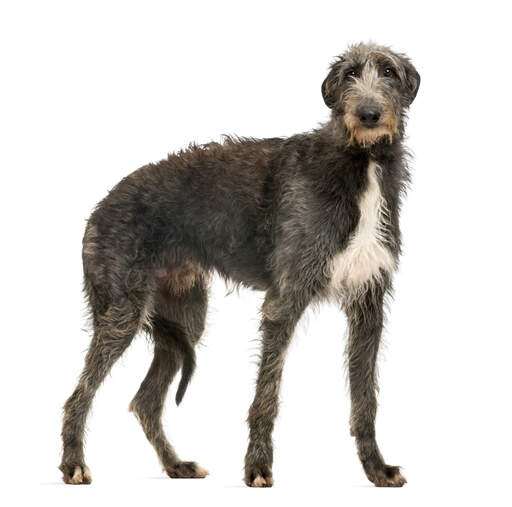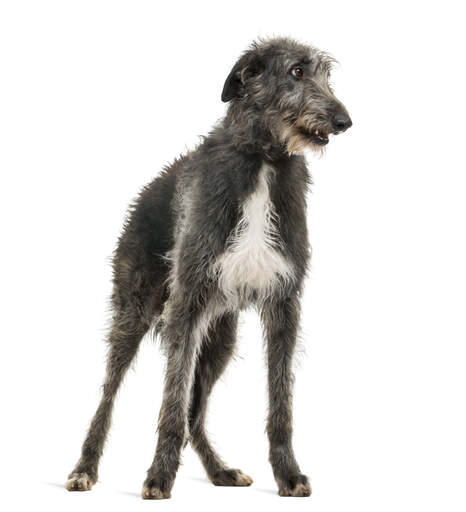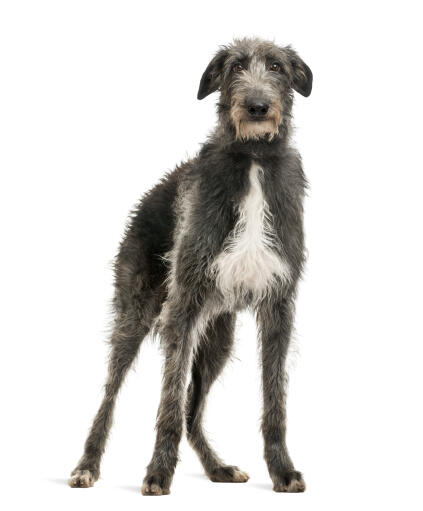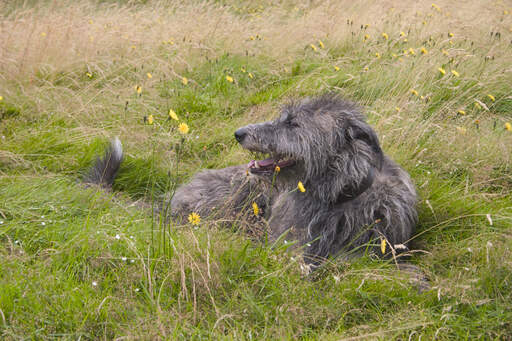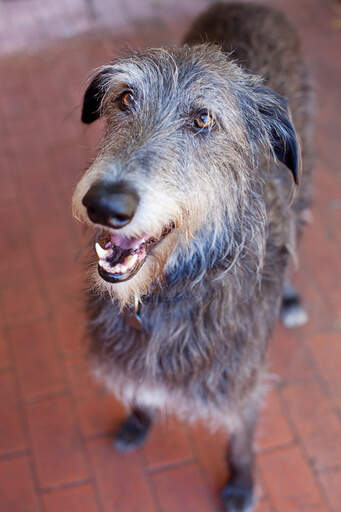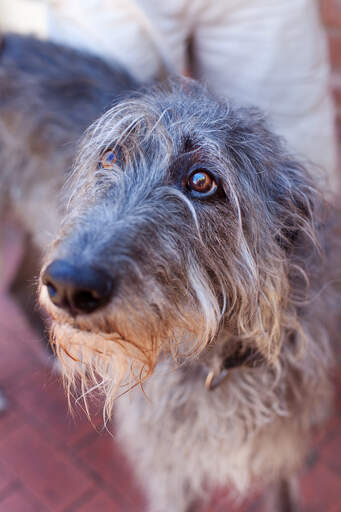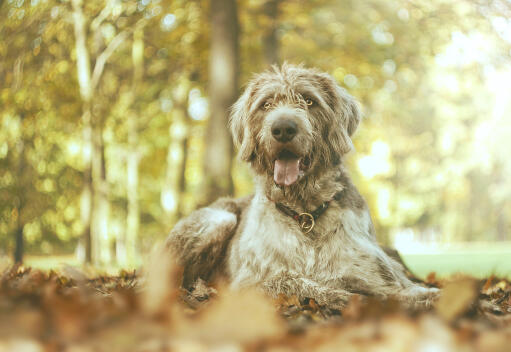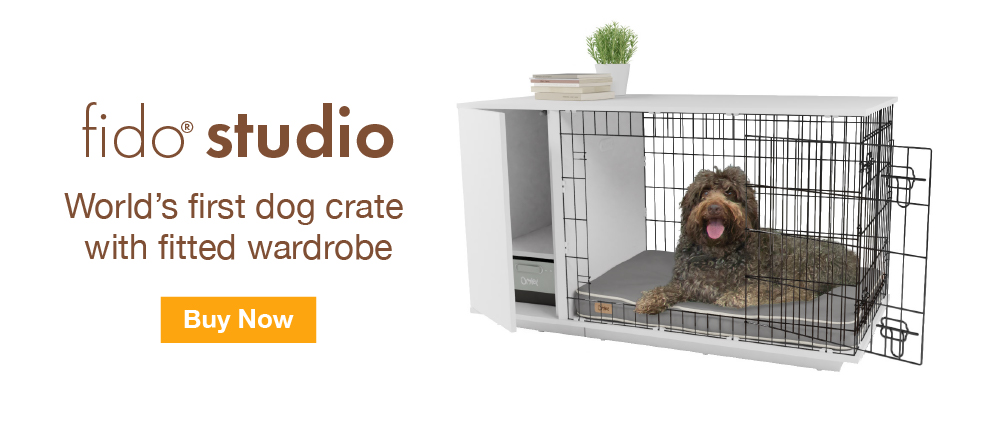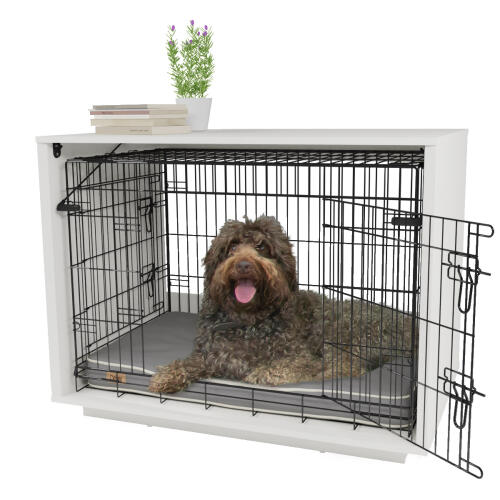Scottish Deerhound Dogs







History
The Deerhound has been around since the Middle Ages. They come from Scotland where they were used to hunt deer. They were strictly reserved for nobility and nobody who ranked lower than an Earl could keep one. By the 1800s, hunting with guns was becoming the preferred method of hunting and as a result the Deerhound’s numbers dropped. A “Deerhound club” was formed to help their numbers rise, but with the breakout of World War One thier numbers dropped yet again. Nowadays their numbers remain low, but the breed is still sturdy with little to no inbreeding.
Behaviour
The Scottish Deerhound is a big softie at heart. They are a loving and devoted breed that thrives when around people. They make for a good family dog and are in general excellent with children and even other dogs and cats if raised together. They were once a dog reserved only for nobility and they have an air of importance and grace to them when they walk. They are a brave and courageous breed, but are never aggressive towards people and in general aren’t aggressive to anything. They can be reserved with strangers and early socialisation is important for them. Try and let them meet as many new dogs, people and places to produce a well rounded breed in adulthood.
The Deerhound is classed as a sighthound and will chase after any rabbits, hares and any other animals that they spot when outside. They are remarkably quick and nimble creatures, once they’re off you have no chance of catching them. This breed values comfort a lot more than other breeds and will seek out a cosy place to sleep in, be sure to provide them with a soft, warm bed otherwise they’ll start using the couch or even your bed as their own. They make for a great jogging/running pattern as they have heaps of stamina and will enjoy the time spent with you.
During puppyhood they are active and almost even hyper, though they can grow-up into couch potatoes. They like to play with other dogs and seemingly revert back to puppyhood when playing. Once they’ve had a good run about they’ll happily curl up and nap away, preferably with you right next to them.
The Scottish Deerhound learns rather slowly and patience will be required. They are very sensitive to harsh words/treatment and this will only set back training even more. They think for themselves and have a sort of “what’s in it for me” attitude to training. Food rewards and positive praise will help, but above all a lot of patience will be needed. This breed has been described as the best friend you could ever have, they are in touch with their owners and will come and offer support if they feel that you are sad.
Some individuals are prone to separation anxiety, so be sure to leave them alone for short periods of time when they are puppies in order for them to get used to it. They will always welcome you home as if you’ve been away for weeks, even if in reality you just went on a 15 minute walk. Their coats will need brushing twice a week to keep it looking neat and tidy, scissoring around the face and ears will keep the face neat and tidy as well.
Temperament
Scottish Deerhounds are mellow and chilled out, and mature dogs love lounging around and dozing (as long as they have somewhere soft to do so). They are docile and don't really mind who they meet or where they go. Outdoors, however, this couch potato loves to gallop across open areas, and this is where their athleticism come into play, and you realize how good this breed must have been at chasing deer.
Health Problems
Scottish Deerhounds are prone to Bloat and Cardiomyopathy (heart disease). They are also more sensitive to Anaesthesia than many breeds. There is also a possibility of bone cancer, allergies and inflammatory brain disease.
Breed Details
- Status: Common
- Life Expectancy: 8 - 10 years
- Weight: 88 - 110 lbs
- Height: 28 - 32"
- Rare: No
- Coat: Medium
- Grooming Requirements: More than once per week
- Town or Country: Country
- Minimum Home Size: Large House
- Minimum Garden Size: Large Garden
- Breed Type: Hound
- Size: Giant
- Energy Level: Medium
- Exercise Required: Over 2 hours

